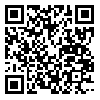Wed, Feb 4, 2026
Volume 30, Issue 3 (6-2020)
JHNM 2020, 30(3): 151-158 |
Back to browse issues page
Download citation:
BibTeX | RIS | EndNote | Medlars | ProCite | Reference Manager | RefWorks
Send citation to:



BibTeX | RIS | EndNote | Medlars | ProCite | Reference Manager | RefWorks
Send citation to:
Ghobadi M, Kazemnezhad Leili E, Jafari Asl M, Shafipour S Z. The Relationship between Social skills and Attitude
towards Substance Abuse among High School Students. JHNM 2020; 30 (3) :151-158
URL: http://hnmj.gums.ac.ir/article-1-1406-en.html
URL: http://hnmj.gums.ac.ir/article-1-1406-en.html
1- Nursing (MSN), School of Nursing and Midwifery, Guilan University of Medical Sciences, Rasht, Iran
2- Associate Professor, Social Determinants of Health Research Center (SDHRC), Biostatistics, Guilan University of Medical Sciences, Rasht, Iran ,kazem_eh@yahoo.com
3- Instructor, Department of Nursing (Pediatrics), School of Nursing and Midwifery, Guilan University of Medical Sciences, Rasht, Iran
2- Associate Professor, Social Determinants of Health Research Center (SDHRC), Biostatistics, Guilan University of Medical Sciences, Rasht, Iran ,
3- Instructor, Department of Nursing (Pediatrics), School of Nursing and Midwifery, Guilan University of Medical Sciences, Rasht, Iran
Abstract: (2904 Views)
Introduction: Substance abuse is one of the health, medical, and social problems in today’s
world that affects more or less all societies. Adolescence is one of the riskiest periods of life in
terms of beginning high-risk behaviors such as drug use.
Objective: This study aimed to determine the relationship between social skills and attitudes
towards substance abuse in high school adolescents in Rasht City, Iran.
Materials and Methods: In this analytical cross-sectional study, 750 male and female
high school students in the 10th, 11th, and 12th grades of Rasht City in north of Iran were
selected and examined using the cluster sampling method. Data collection tools included
a demographic information questionnaire, a social skills questionnaire, and the addiction
potential scale. The collected data were analyzed using the Spearman, Mann-Whitney,
Kruskal-Wallis correlation tests, and logistic regression model.
Results: In the study, 51.1% of subjects aged 16-17 years, 57.7% were girls, 85.2% of them
lived with their parents, and 82.9% of the students stated that there is no addict in their
family. Based on the results, the Mean±SD score of social skills in students was 271.05±23.73.
In various subscales of social skills, 62% to 73.9% of students were able to obtain a mean
or upper grade. The students’ highest skill was related to the decision-making subscale with
the Mean±SD score of 28.90±3.76 and the lowest was related to coping with stress with
the Mean±SD of 25.47±4.40. Also, regarding the attitude towards drug abuse, the highest
Mean±SD score (more positive attitude towards drug abuse) was related to the subscales
of drug use effects (2.68±0.90); and the lowest Mean±SD (more negative attitude towards
drug abuse) was related to the subscale of drug use or the tendency to use drugs (2.14±1.02).
According to the results, there was a significant reverse relationship between the mean±SD
social skills and attitudes scores towards substance abuse (r=-0.442, P<0.001). The findings
also showed that gender is considered as a predictor variable of substance abuse attitudes, so
that boys were 1.36 times more positive than girls (OR: 1.36, 95% CI=0.980-1.900, P<0.066).
Conclusion: Based on the results, social skills training to increase self-efficacy and selfconfidence
in dealing with life’s challenges and problems may have long-term effects in
preventing the occurrence of high-risk behaviors such as substance abuse and creating the
right attitude in them.
world that affects more or less all societies. Adolescence is one of the riskiest periods of life in
terms of beginning high-risk behaviors such as drug use.
Objective: This study aimed to determine the relationship between social skills and attitudes
towards substance abuse in high school adolescents in Rasht City, Iran.
Materials and Methods: In this analytical cross-sectional study, 750 male and female
high school students in the 10th, 11th, and 12th grades of Rasht City in north of Iran were
selected and examined using the cluster sampling method. Data collection tools included
a demographic information questionnaire, a social skills questionnaire, and the addiction
potential scale. The collected data were analyzed using the Spearman, Mann-Whitney,
Kruskal-Wallis correlation tests, and logistic regression model.
Results: In the study, 51.1% of subjects aged 16-17 years, 57.7% were girls, 85.2% of them
lived with their parents, and 82.9% of the students stated that there is no addict in their
family. Based on the results, the Mean±SD score of social skills in students was 271.05±23.73.
In various subscales of social skills, 62% to 73.9% of students were able to obtain a mean
or upper grade. The students’ highest skill was related to the decision-making subscale with
the Mean±SD score of 28.90±3.76 and the lowest was related to coping with stress with
the Mean±SD of 25.47±4.40. Also, regarding the attitude towards drug abuse, the highest
Mean±SD score (more positive attitude towards drug abuse) was related to the subscales
of drug use effects (2.68±0.90); and the lowest Mean±SD (more negative attitude towards
drug abuse) was related to the subscale of drug use or the tendency to use drugs (2.14±1.02).
According to the results, there was a significant reverse relationship between the mean±SD
social skills and attitudes scores towards substance abuse (r=-0.442, P<0.001). The findings
also showed that gender is considered as a predictor variable of substance abuse attitudes, so
that boys were 1.36 times more positive than girls (OR: 1.36, 95% CI=0.980-1.900, P<0.066).
Conclusion: Based on the results, social skills training to increase self-efficacy and selfconfidence
in dealing with life’s challenges and problems may have long-term effects in
preventing the occurrence of high-risk behaviors such as substance abuse and creating the
right attitude in them.
Article Type : Research |
Subject:
Special
Received: 2020/07/4 | Accepted: 2020/07/4 | Published: 2020/07/4
Received: 2020/07/4 | Accepted: 2020/07/4 | Published: 2020/07/4
Send email to the article author
| Rights and permissions | |
 | This work is licensed under a Creative Commons Attribution-NonCommercial 4.0 International License. |






